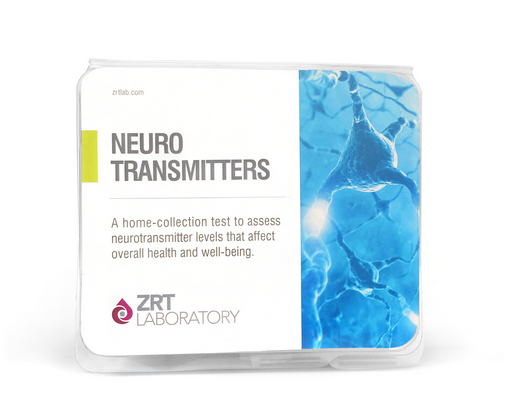Brain Health Testing
The Adaptive Stress Response
There are certain things that happen inside our bodies when we’re faced with a threat, or stressor. Together, they make up the adaptive stress response:
- Your brain sets off an alarm, releasing chemical messengers in the form of hormones and neurotransmitters.
- These chemical messengers stimulate your adrenal glands to release a surge of stress hormones, including adrenaline and cortisol.
- Adrenaline, also called epinephrine, increases your blood pressure and heart rate.
- Cortisol increases sugars in your bloodstream.
- Cortisol also dampens bodily processes – like immune responses, digestion, reproductive, and growth processes – that aren’t essential for managing the immediate threat
The hormones communicate with regions in the brain that control fear, mood and motivation.
Unfortunately, when stress becomes chronic, this natural alarm system never shuts off. The adrenal glands become taxed. Over time, the overexposure to cortisol and other stress hormones can disrupt nearly all of your body’s normal functions and can lead to:
- Anxiety
- Depression
- Digestive problems
- Headaches
- Heart disease
- Sleep problems
- Weight gain
- Memory and concentration impairment
When you understand our bodies’ natural stress response system, it’s not surprising that chronic stress is called the “silent killer.”
A Delicate Balance
Our nervous system always seeks to be balanced. Once our neurotransmitters become imbalanced, the nervous system begins to overcompensate. Over time, this leads to neurological or psychological symptoms.
Many common issues are known to be accompanied by neurotransmitter imbalances. Here are five common conditions and the imbalanced neurotransmitters associated with them:
- Depression & Anxiety – imbalances in glutamate, PEA, histamine, serotonin, epinephrine, and norepinephrine
- Chronic Fatigue – imbalances between excitatory and inhibitory neurotransmitters
- Impulsivity – imbalances in GABA, dopamine, and serotonin can be linked to ADD/ADHD and OCD
- Insomnia – imbalances in glutamate, histamine, dopamine, GABA, and serotonin.
- PMS or PMDD – imbalances in serotonin, dopamine, norepinepherine, and GABA, along with hormonal imbalances such as estrogen dominance.
The Process
- Order a Neurotransmitter Test Kit [here]. (link to shop page)
- Collect urine on the provided filter strip, four times during the day.
- Send the completed kit into our laboratory for testing, using the prepaid, addressed envelope.
- Receive your lab report.
- Gather real meaning, beyond just the numbers, with a detailed physician assessment and tailored treatment recommendations.
What Is Brain Health Testing?
There are many neurotransmitters and hormones affected when our brain is in a constant fight-or-flight mode. Cortisol is the primary hormone released when a threat is detected by our brain. Over time, this taxes the adrenal glands and eventually affects other hormones in the body.
By testing these neurotransmitters and hormones we can learn how well the brain and adrenals are functioning and how taxed they may be. Then, through targeted treatments, we can shift the body out of this fight-or-flight mode (or sympathetic state) and into a more relaxed mode (or parasympathetic state). Re-testing levels can show improvements in the stress response that will coincide with improved symptoms.
Recommended Testing
ZRT Neurotransmitter Test
This is the most convenient and comprehensive neurotransmitter test available today. By testing both hormones and neurotransmitters at the same time, it allows for a better analysis of how these chemicals may be affecting you.
The test measures the following neurotransmitters and hormones:
- GABA
- Glutamate (Glu)
- Glycine (Gly)
- Dopamine (DA)
- Histamine
- 5-hydroxytryptamine (5-HT)
- Phenethylamine (PEA)
- 3,4-Dihydroxyphenylacetic acid (DOPAC)
- Homovanillic acid (HVA)
- 5-hydroxyindoleacetic acid (5HIAA)
- Normetanephrine (NMN)
- Vanillylmandelic acid (VMA)
- Creatinine (Crtn)
- Diurnal Cortisol (x4)
- Cortisone (x4)
- Melatonin (x4)
- Norepinepherine (x4)
- Epinephrine (x4)
A detailed report provides valuable information that can be used to correct imbalances and get you feeling better.
Frequently Asked Questions
The kit is $494 and can be purchased [here]. (link to shop) A 30-minute visit to discuss results is included in the price of the test kit.
Your results will give you a picture of how balanced your neurotransmitters and hormones are and what adjustments may need to be made. The test results will be sent directly to you. Once you receive them, you should schedule a 30-minute visit (included in the price of the test kit). At this visit, your provider will explain your results and provide suggestions to correct any imbalances.
You may choose to re-test after following the treatment recommendations for 3-9 months. You don’t need to re-test if you’re feeling better.
We’ll work together to implement an individualized, natural protocol to bring balance back to your brain and body.
Even if you’re unable to begin treatment at this time, don’t let chronic stress go unchecked. You can help your body recover from stress and form healthier patterns by incorporating these activities into your life:
- Learn about the stress response and steps you can take to shift into a more relaxed state
- Incorporate a healthy diet rich in whole foods and nutrients
- Engage in regular physical activity
- Spend time outdoors in nature
- Avoid negative environmental influences as much as possible
- Develop habits like meditation, mindfulness, and healthy sleep
- Engage in community and relationships that uplift you and give you purpose
All these things have been shown to protect against the effects of chronic stress.


